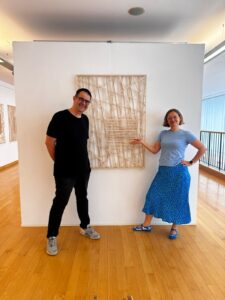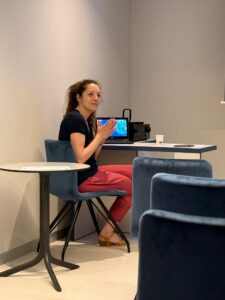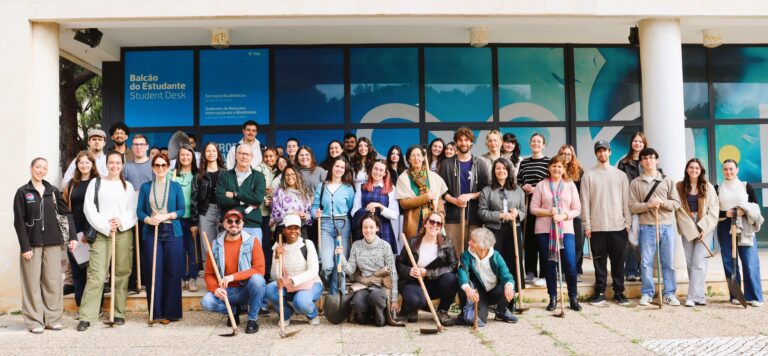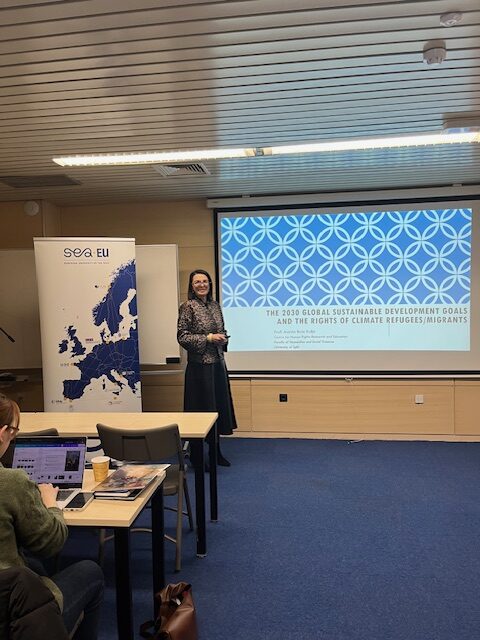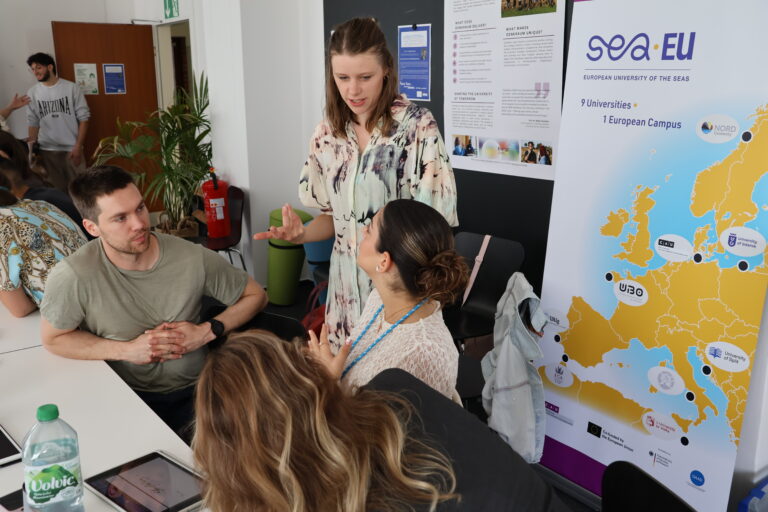University of Split hosted SEA-EU Staff Week dedicated to Maritime data Literacy
The University of Split organized the SEA-EU Staff Week dedicated to “Marine Data Literacy“ (MDL). Scheduled from June 25 to June 28, 2024, this four-day program enriched participants’ understanding and preparation for future MDL courses. The event emphasized the importance of MDL in the context of the SEA-EU alliance, aiming to foster a deeper appreciation and more forceful knowledge among participants.

A Journey through Marine Data Literacy
The first day of the event started with a session that traces the origins and development of Marine Data Literacy, led by Aldo Drago. Prof. Drago provided a historical context that is crucial for understanding current practices and future directions. The morning was continued with a series of 10-minute presentations by participantsoffering a platform for attendees to share their insights, experiences, and expectations while fostering a collaborative learning environment. In general, they wanted to highlight that “Marine Data Literacy“ course is designed to inform, train, and empower students in marine data sourcing, exploration, valorization, and creating added value. It teaches skills for professional, holistic interpretation of data, transforming data into knowledge and products using techniques like artificial intelligence. The day concluded with a lunch, providing a space for informal discussions and networking.
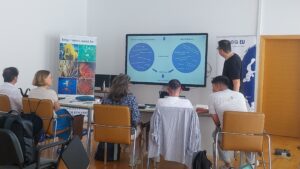
Review and Insights from the 3rd MDL Course
The second day focused on a comprehensive review of the 3rd MDL course. Audrey Zammit opened with a session on the online component, highlighting the digital strategies and tools that have been responsible for the course’s success. Frano Matić took the floor to dig into the practical mode, emphasizing the value of hands-on experiences. He illustrated this with engaging examples and introduced a variety of tools for data extraction, visualization, and analysis. Highlighting the integration of CMEMS and EMODnet portals, prof. Matić showcased their significant impact on enhancing learning outcomes. After a coffee break, prof. Matić continued with a session on the project mode, emphasizing a better understanding and application of MDL concepts. The day included a session on Erasmus mobility led by head of International Relations Office at the University of Split, Ana Ćosić who discussed past experiences and future opportunities addressing the issues which teachers involved in the developemnt of BIP programme encountered. A roundtable discussion concluded the day, allowing participants to reflect on the 3rd MDL course, share feedback, and propose some practical solutions. Working session was enriched with a visit to Split University gallery where participants could enjoy the opening of the art exhibition adn meet some of Croatian most famous artists, sculptor Krešimir Katušić and a painter Zvonimir Mihanović.
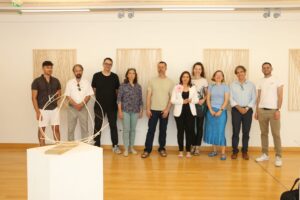
Preparing for the Future
The third day of the SEA-EU staff week BIP began with Aleksandra Dudkowska’s sessions on online and practical components of BIP programme, providing detailed plans and encouraging participants’ input. Also, she emphasized the importance of equipping students with skills to visualize, process, and analyze marine data. This foundation in data literacy is crucial for their future pursuits in postgraduate studies and professional careers. Furthermore, the curriculum includes teachings on sustainable development, the blue economy, and integrates scientific knowledge with management and policy. The session continued in the project mode, with Frano Matić outlining key topics and methodologies. Later, Gordana Dujmović, manager of the SEA-EU office in Split, gave participants another perspective of MDL putting it in the broader context of the SEA-EU alliance, and showing how much much this course is related to other project tasks and how it contributes to the alliance’s main objective of transforming educational offer through internationalization and peer-networking. It was clear that it is not easy to keep teachers’ motivation without adequate support from the university and recognition of the work, but the enthusiasm participants showed through these intense discussions guarantees successful organization of another edition of Marine Data Literacy in Gdańsk next year.
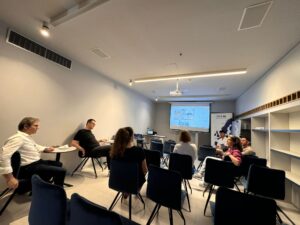
Finalizing the Framework
The final day was dedicated to the meticulous preparation of documents necessary for the 4th MDL course. Participants collaborated on drafting online component materials, ensuring they are comprehensive and accessible. The event concluded with a roundtable discussion, synthesizing the week’s insights and solidifying plans for the upcoming course. A farewell lunch provided more time for networking and informal exchanges.

Conclusion: A Commitment to Marine Data Literacy
The SEA-EU Staff Week at the University of Split is more than just an academic event; it is a testament to the ongoing commitment to “Marine Data Literacy“ within the SEA-EU alliance. By bringing together experts -teachers, people from support offices of SEA-EU and IRO, the event showed that collaborative environment is essential for the advancement of MDL. This program not only reviews past achievements but also sets the stage for future innovations, ensuring that the field of Marine Data Literacy continues to evolve and grow.
Even though during this staff week, genuine issues were brought to light, it completely fulfilled its pupose – overcome the difficulties in delivering BIPs such as Marine data Literacy. The discussions held at the end of each day were intense and further illuminated the true state of affairs in this field. The main obstacle preventing progress is the lack of institutional support for teachers and the fact that the Maritime Data Literacy course is not adequately recognized within SEA-EU. It was also brought to attention that coastal universities need to be more involved in the SEA-EU project to bring about significant changes. This dedicated group of people is working diligently to effect change on local, national, and global levels and to sustain a program that has the potential to transform Europe.It is a celebration of knowledge, a commitment to education, and a step towards a more informed and literate future in the field of marine data.
